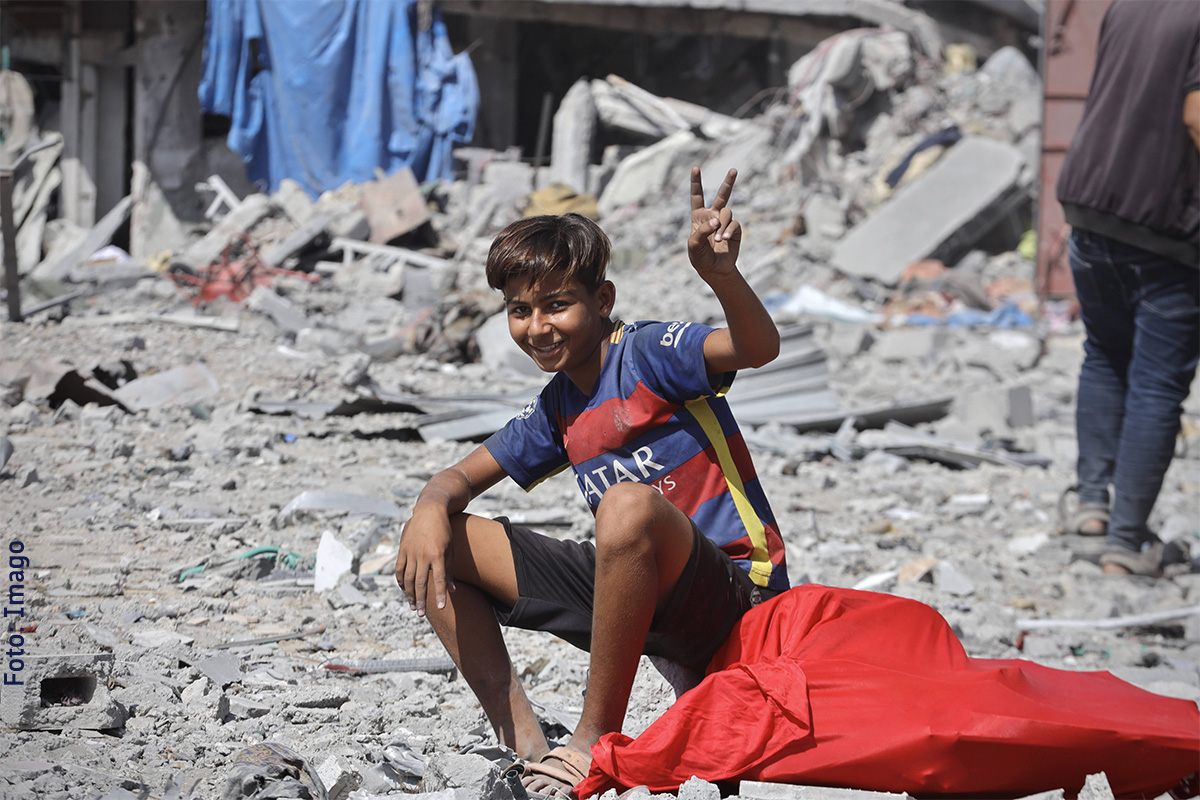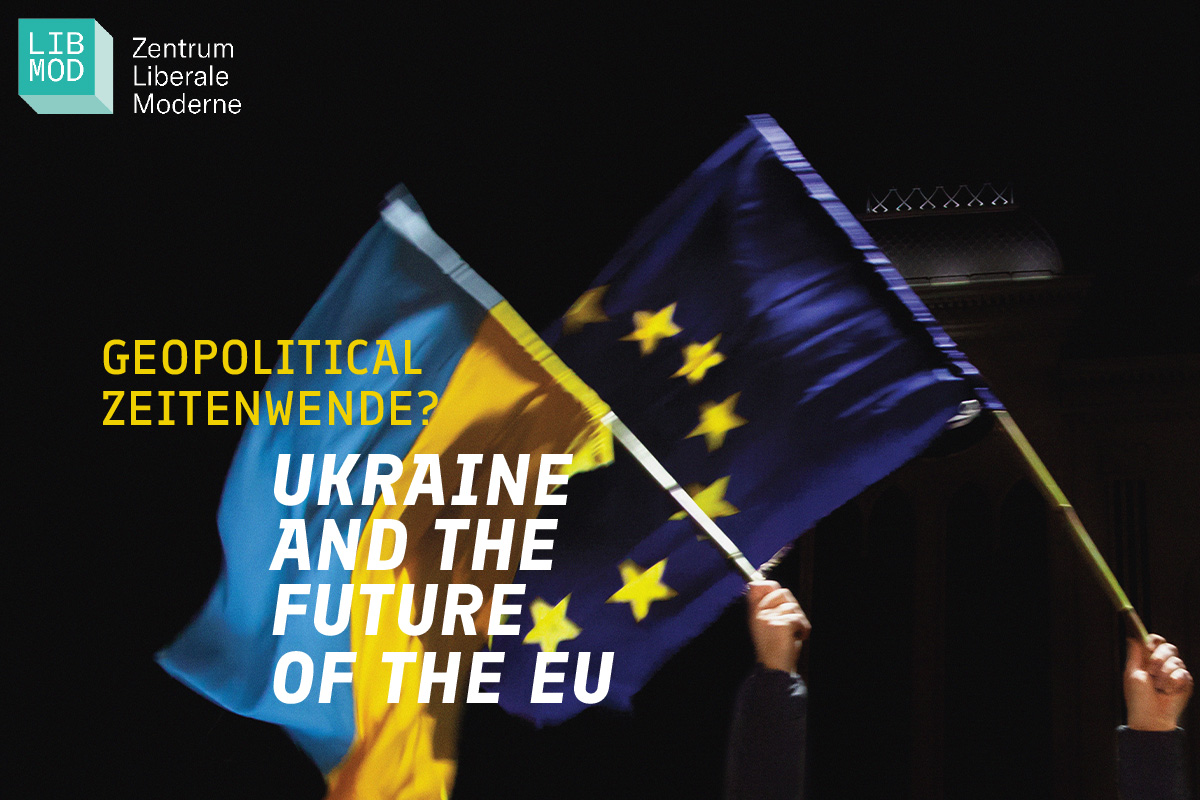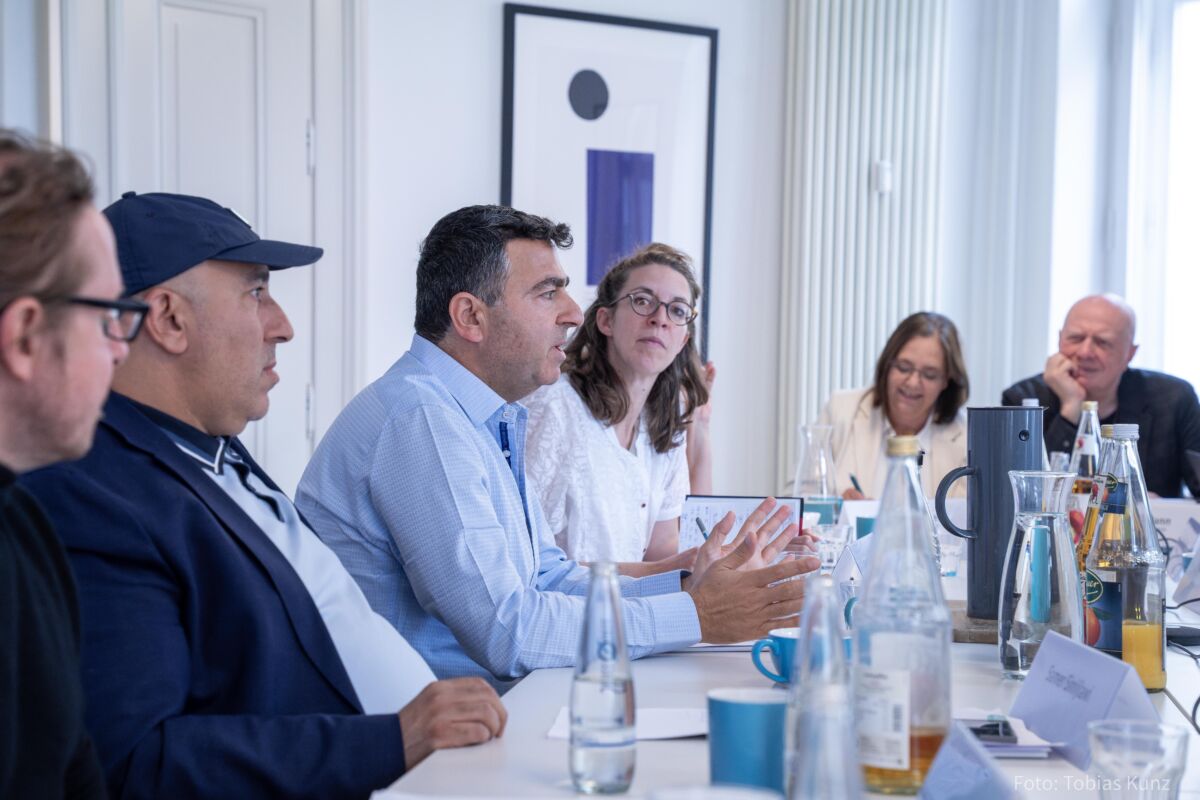Israel and Palestine: Ways out of War, Terror and Occupation

Given the level of violence and hostility since 7 October, a political solution to the Israeli-Palestinian conflict seems a long way off. At the same time, it is more urgent than ever. Together with experts from the region, a new LibMod project aims to explore the opportunities for a two-state solution and for security and cooperation in the Middle East.
The terrorist attack by Hamas on Israel on 7 October 2023 was a turning point for the country, but also for Jews worldwide. It was the worst attack on Jews since the Holocaust. In response to this massacre, Israel exercised its right to self-defence and began destroying Hamas’ military infrastructure in Gaza. Unfortunately, the ongoing war has also cost thousands of civilian lives, as Hamas has systematically entrenched its military installations in civilian facilities such as hospitals, schools and residential neighbourhoods. But the death of Sinwar gives the chance for a ceasefire and a hostage deal.
The terrorist attack and the subsequent war have created a paradoxical situation. On the one hand, the rifts between Israelis and Palestinians have been widened, new traumas have been created and hostility and mutual mistrust have deepened. At the same time, it has become clear that the status quo of repeated wars and ongoing occupation with no prospect of a political solution has become untenable.
The Israeli strategy of simply managing the conflict has failed. On the other hand, the strategy of terror against Israel is leading the Palestinians into a hopeless situation.
A political solution to the conflict is therefore more urgent than ever, especially as Israel is threatened with a multi-front war with Iran and its allies. An understanding between Israel and the Palestinians that creates security and self-determination for both sides is also an important building block for a more comprehensive security architecture in the Middle East.
In this difficult situation, we have launched a project to explore the possibilities of a political solution to the Israeli-Palestinian conflict. Since the summer, we have established a network of experts from Israel and the Palestinian territories, Jordan, Egypt and Saudi Arabia, the United States and Germany. Together, we want to use constructive dialogue to identify peaceful ways out of war, terror and occupation in the Middle East. An Israeli-Palestinian understanding should – in the style of the European CSCE process – become part of a more comprehensive alliance for security and cooperation in the Middle East, including Israel. If there is to be any chance of peace, the regional actors and states must play a central role in this process. This also applies to the necessary security guarantees for Israel and the Palestinians.
The basis for a political solution will be the existing concepts for a two-state solution, which, however, need to be updated in light of the changed circumstances. One key question will be how much separation and how much co-operation there should be in future between Israel and the future Palestinian state.
It is also clear that there will be no two-state solution as long as Israel has to fear that a Palestinian state will become a base for further terrorist and rocket attacks. At the same time, the solution of the Israeli-Palestinian conflict is also of central importance for the future of Israel as a Jewish and democratic state. The undignified situation of millions of Palestinians under Israeli occupation must be ended as quickly as possible. The conflict with the Palestinians must be resolved, not least in view of the threat to Israel from Iran and its allies, but also for the sake of the future of Israeli democracy. Without a tangible prospect of a political solution, any ceasefire is merely a breathing space before the next war.
The first meeting of the network on 8–9 October took place in the most unfavorable political circumstances, one year after the 7 October massacre and the start of the war in Gaza. Nevertheless, 14 people from Israel, the Westbank and the region came to Berlin in person, and one Palestinian participated online.
The discussion was largely conducted in a calm and constructive atmosphere, demonstrating a willingness on all sides to reach out to each other.
We decided that the meetings take place under Chatham house rules. Therefore the names of the participantswill not be published.
.
Eli Bar-On, Co-Founder and CEO of MENA2050
.
Huda Abu Arqoub, Peacebuilding Specialist, 1325 UNSCR Women, Peace, and Security Advisor, Conflict Transformation Expert
.
Dr. Yossi Beilin, Initiator “Holy Land Confederation”, fmr Minister of Justice, Initiator of the Oslo Agreement
.
Abdulaziz Alkhamis, Senior Saudi Journalist and Researcher, Board of MENA2050
![]()
Hat Ihnen unser Beitrag gefallen? Dann spenden Sie doch einfach und bequem über unser Spendentool. Sie unterstützen damit die publizistische Arbeit von LibMod.
Spenden mit Bankeinzug
Spenden mit PayPal
Wir sind als gemeinnützig anerkannt, entsprechend sind Spenden steuerlich absetzbar. Für eine Spendenbescheinigung (nötig bei einem Betrag über 200 EUR), senden Sie Ihre Adressdaten bitte an finanzen@libmod.de
Verwandte Themen
Newsletter bestellen
Mit dem LibMod-Newsletter erhalten Sie regelmäßig Neuigkeiten zu unseren Themen in Ihr Postfach.





